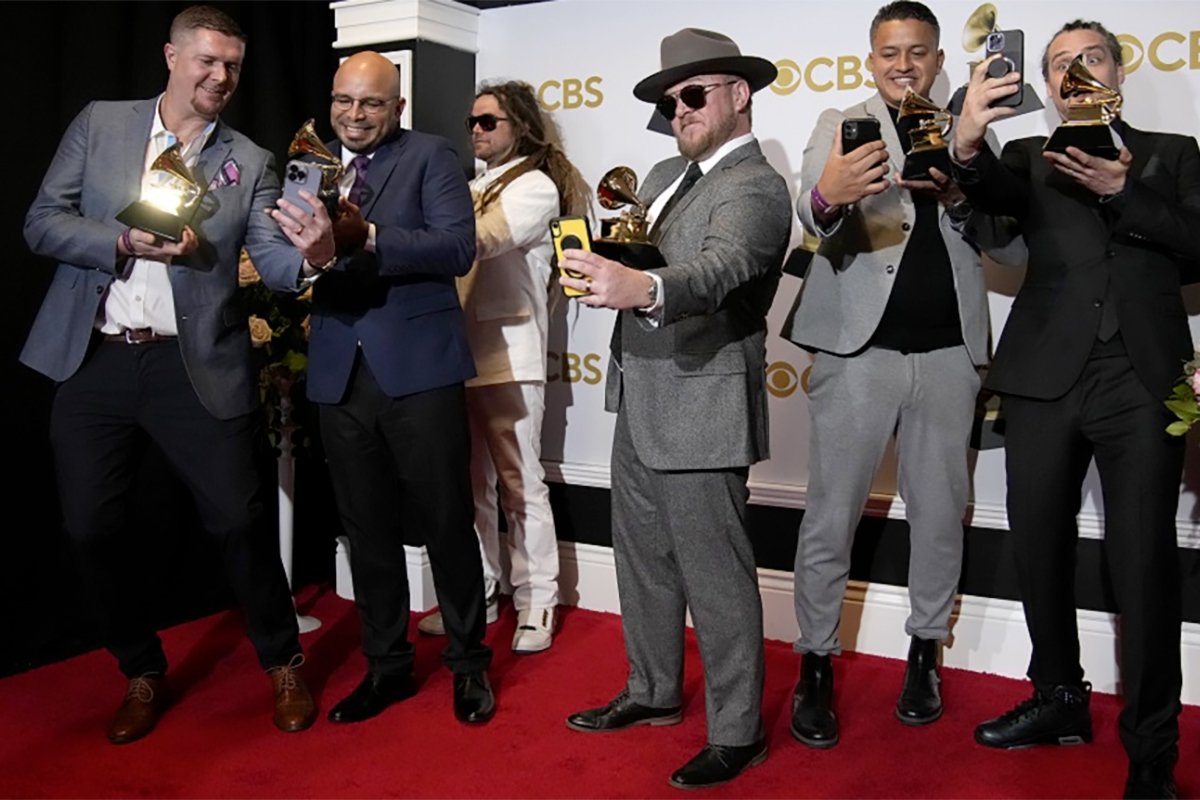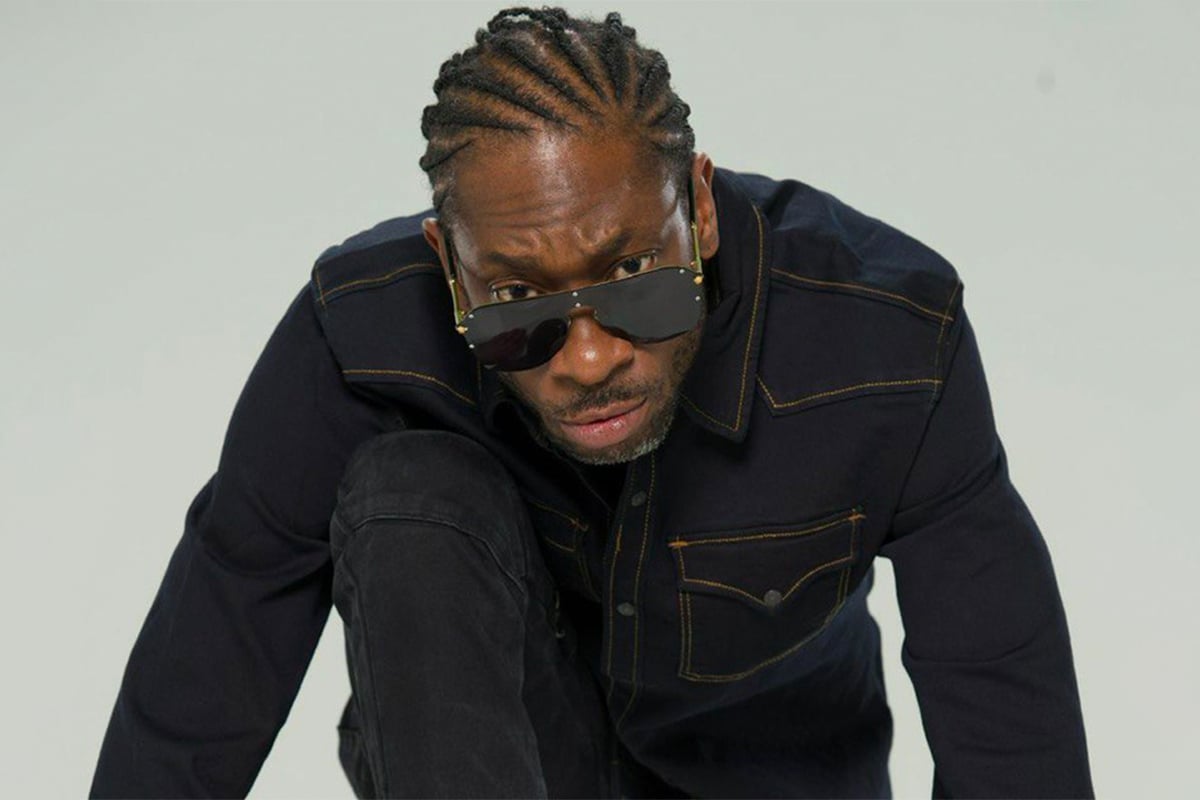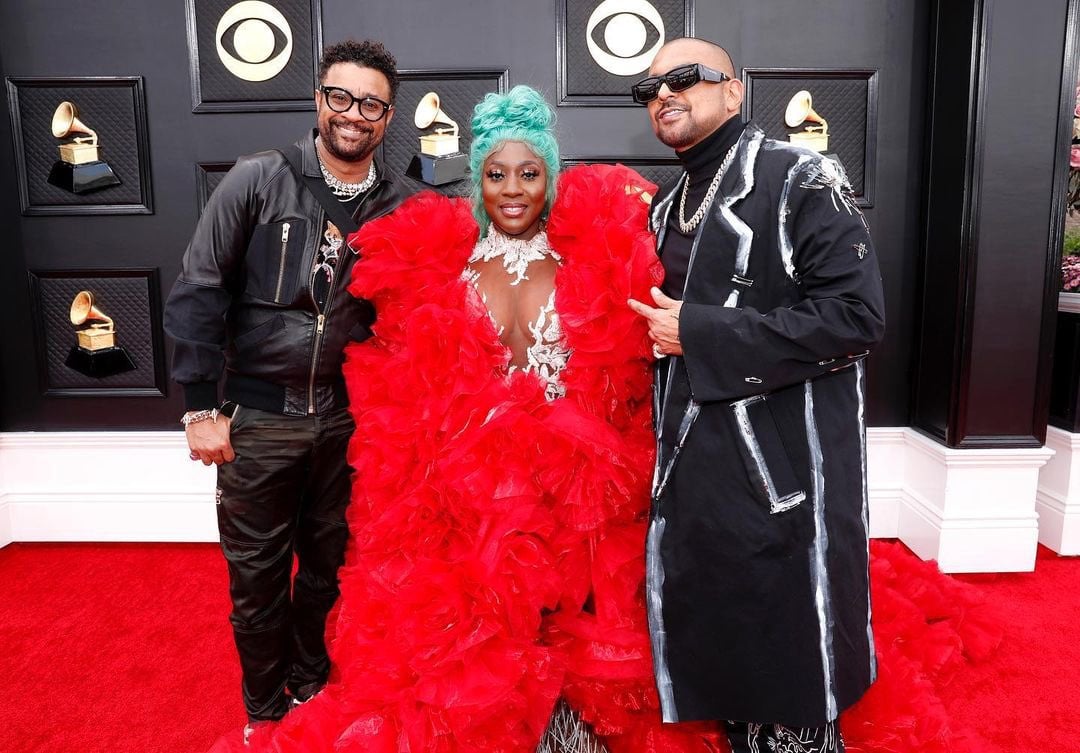Why SOJA Won The Reggae Grammy Against Five Jamaicans

There has been a flurry of accusations aimed at the Recording Academy—including those of bias and race-based favoritism—after American band SOJA (Soldiers of Jah Army) upstaged Jamaican artists Spice, Jesse Royal, Sean Paul, Gramps Morgan, and Etana, to win the Best Reggae Album Grammy Award for their album Beauty In The Silence.
But there is one major reason for Sunday night’s result, and it may be the same reason why Dancehall albums continue to be ignored during nominations and why the Bob Marley family holds 13 of the 37 Reggae Grammys awarded since 1985.
On Sunday night, following the announcement of the Virginia-based band’s win, there were expressions of disappointment and outrage from some Jamaican musicians, among them Shenseea, Beenie Man, Bounty Killer, and producer Foota Hype. “Why unu dweet???” was the question posed by Shenseea on The Shade Room where an image of SOJA was shared, while Beenie Man wrote: “Smh”
Bounty Killer wrote in an Instagram post, “What a big piece a sell out gwaan ya so white folks winning best reggae album over Jamaicans wtf🤔.”

“Dedicated to di Jamaican government who’s fighting our culture music and even we language but still uses it to promote our campaigns. That’s why dutty Billboard and Grammy feel they can style di thing folks,” the Warlord added in another post, accompanied by a clip of an unreleased track with Sizzla titled How Dem Fi Fight Reggae Music.
The most critical question which, interestingly, has not been raised, is whether enough Jamaican artists, producers and engineers — who number in the thousands — have made a concerted effort to register to become voting members of the Recording Academy.
Considered the most prestigious in the world, the Grammys are a peer-voted music award presented by the Recording Academy, an American “learned academy of musicians, producers, recording engineers, and other musical professionals” which recognizes achievements in the music industry of songs and music that are popular worldwide.
According to Recording Academy rules, membership is open to creative or technical music professionals, such as singers, composers, producers, art directors, and engineers. Voting members must have been either producers, performers, or engineers on six or more tracks of a commercially released album or 12 or more digital tracks, a requirement that most of Jamaica’s music professionals of all ages, easily meet. Prospective members are also required to provide two recommendations from their peers and must pay a $100 membership fee yearly.
However, as recent as December 2020, Dancehall megastar Shaggy had to reiterate his call for qualified entertainers to become members of the Recording Academy in order to make their ballots count, this in the aftermath of the outcry by some Dancehall artists about what they deemed the continued snubbing of the genre by the Grammy Awards.
In 2020, Popcaan had lashed out at the Recording Academy for not considering his FIXTAPE album for nomination in the list of Best Reggae Album contenders for 2021. Popcaan had poured scorn on the Grammys for its snubbing of Dancehall and accused the organization of being corrupt.

But Shaggy maintained that the Recording Academy was not to be blamed and that artists themselves ought to play their role by registering with the organization so that they can cast votes.
“Every year that the Grammys come out people are disgruntled about it and this one is no different. It is what it is. I always tell people if you want to make a change, register and get involved and be a part,” Shaggy had explained.
“You caan just stay pon di side and seh di Grammy dem a dis and di Grammy dem a dat. If you are not registered then you are not a part of it. Get on board if you want a different outcome,” the diamond-selling artist had said.
In February this year, Grammy-nominated producer and music executive Cristy Barber had lamented the fact that Jamaica has had a history of low voter numbers, noting that in 2009, there was only one registered voter in Jamaica.
She had said that the focus at present ought to be on preventing the “Best Reggae Album” field which subsumes all Jamaican music, from being taken away, as data shows that the number of entries had dwindled during 2021.
Barber, an A&R and Creative Consultant, celebrated SOJA’s win in an Instagram post today, where she noted: “It was such an HONOR to work this record with my @sojagram Boyz 🤗🤗. It’s been a minute since we’ve been chipping away at this and now, FINALLY the win! #superproud.”
Aside from the accusations of bias, there were some Jamaicans who pointed out that the Grammy going to SOJA was a wake-up call for Jamaican Reggae and Dancehall artists.
“I do hope artists start to take their craft more seriously! Gun lyrics and trap music cannot pass the airport …… Congratulations to the winner,” ms.ann_cella said.
“Serve Unnu right because a bare f-ckery Unnu release fi di last couple a years mek people like this a win over Unnu,” mellowrida said.
Others said that the Jamaican music fraternity was at fault.
“See when we a tell the youth them to wise up and sing strong stuff uno say we a fight artist we just get disgrace in front of the world how uno feel now? Robbery still but this a what we warning about just like foreigners come tek the best part of Jamaica and we a fight for ghetto areas the music is the same,” thebungoman said.
“Living in America Jamaicans dont really appreciate the music as the white Americans do. We been loosing our music there’s no unity in it and others see that and take advantage of it,” great_trevorb said.
